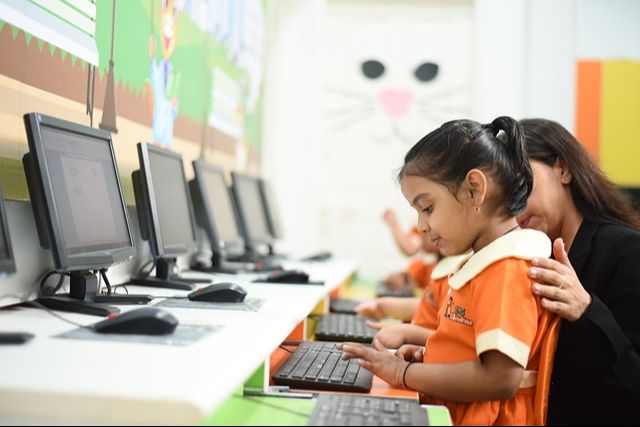Chapter 1- How To Predict If Your Baby or Toddler Will Fall Behind In Primary/ Elementary School
Some years back, I called my friend, I will call her Mabel, to check how her daughter was doing. Her daughter was five and had started primary school or elementary school, as they say in the USA. My friend was in tears as she described how badly her daughter was doing in school.

She explained how her daughter had fallen behind at school. The teachers kept her at the back of the class and did not have the time to attend to her. Her reading was very, very poor for her age. She struggled with math, and while we didn’t discuss it, I do not doubt that she struggled with writing and grammar.

Another friend, I’ll call her Nish, had a seven-year-old son. She was worried that he couldn’t read basic books. Another friend, I’ll call her Martha, was starting to get worried. Her 5-year-old son was learning to read but wasn’t making the progress that a child of his age should have been making. Both Nish and Martha’s sons had fallen behind. They were struggling with their basic academics.

When a child starts to fall behind in primary school, it is difficult for them to catch up and begin to excel. If you are the type of parent who doesn’t mind the results their child gets at school, then this book is not for you. Don’t bother reading any further. But, if you are the type of parent who wants their child to achieve the best results possible in school. If you do not want the results Mabel, Nish, and Martha experienced with their children, keep reading.

Of course, not every child who is in primary school falls behind. Not every child struggles to cope. In schools in many countries around the world, some children perform well and get top grades. Some children are average, and some get poor grades. In schools in the USA the situation is very bad. A very large percentage of elementary school children are far behind where they should be in their reading, writing and math. Many of these children's academic future does not look good. How can you predict which group your child will fall into when they get to primary school?
Here’s the answer. You can’t. Mabel, Nish and Martha could not have predicted that their children would struggle in primary school. None of their children had a mental disability, so how could they have known? There is no way they could have predicted their children would perform so poorly. And you can’t predict which group your baby or toddler will fall into, either. You may have a good idea as to what may happen. For example, if the public schools in your country are performing really badly, like in the USA. You know that the chances of your children doing badly in primary school are going to be higher than in a country where public schools are doing really well.

You see, your focus shouldn’t be to predict what group your child will fall into. Your focus also shouldn't be to hope your child doesn't fall into the poor-performing group. Instead, your focus should be on taking steps right now while your child is still a baby or toddler. Steps that will ensure that they avoid the poor grades group. And are instead in the top grades group when they get to primary school. Steps that will ensure that they will not do poorly in their reading, math, and writing and will instead do well.
Assume your child would have naturally ended up in the poor grades group. You can take steps right now while they are still a baby or toddler that can make a future difference. These steps will ensure that your child will not fall into the poor-performing group. These steps will ensure that your child will have the mental ability to end up in the top-performing group.

Assume that your child would naturally have ended up in the average-performing group. There are steps that you can take now that will ensure that your child will, in the future, have the mental ability and preparation to end up in the top-performing group. Assume your child would have naturally ended up in the top-performing group anyway. These steps will ensure that they have the mental ability to perform even better.

That is what this e-book is about. It is trying to bring this important point to your attention. If you care about the future academic performance of your child, there are steps that you need to take right now. And if you take these steps while your child is still a baby or toddler, they can avoid poor future academic performance and perform well instead.
You need to know about these steps now while your child is still a baby or toddler. This is because it will not be possible to take the steps once your child reaches school age. Also, the younger your child is when you start, the better the results you will likely see in the future.

If you want to find out what these steps are. And what results you can expect to get when you take them. And why and how these steps lead to good future academic performance. Then, keep reading.
Index page [ & Access To Free Guide]

